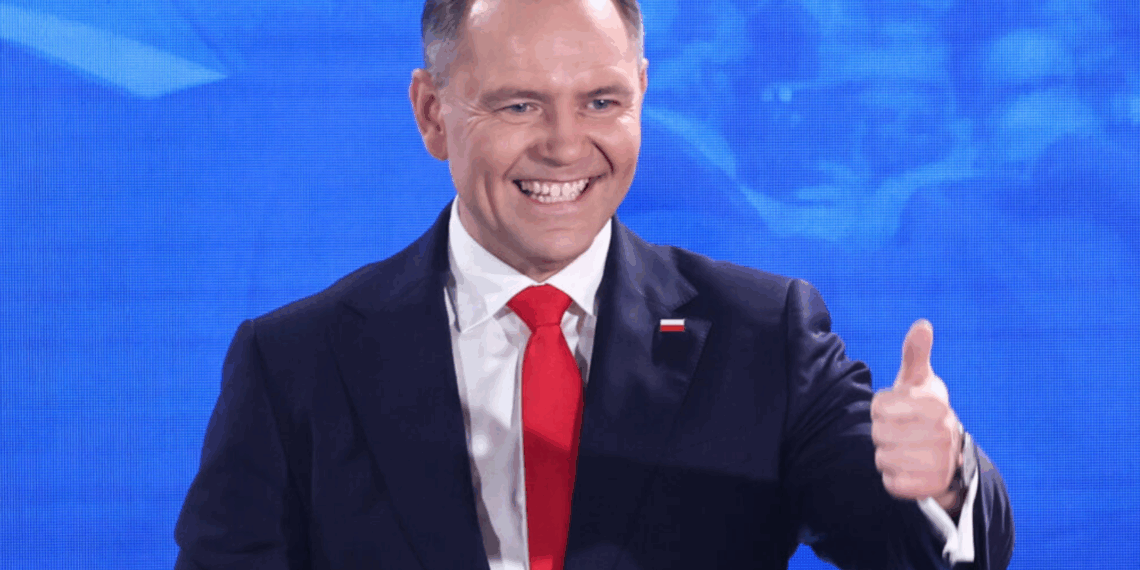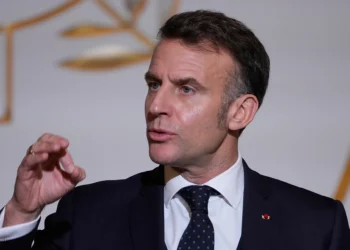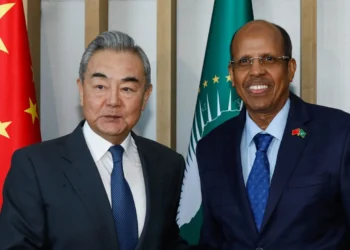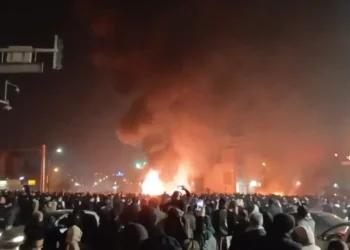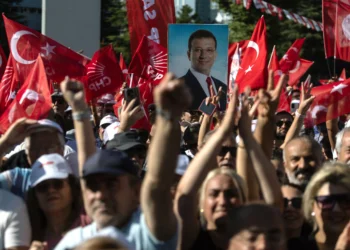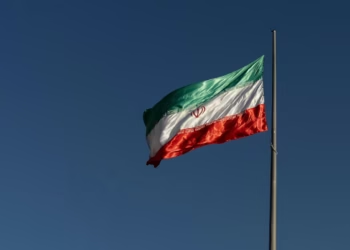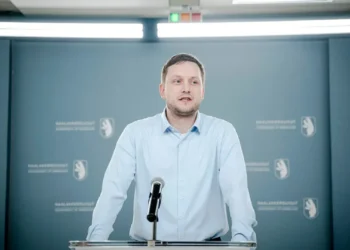WARSAW (Realist English). Poland has elected Karol Nawrocki, a nationalist conservative and former director of the Institute of National Remembrance, as its next president — a result that underscores the growing influence of right-wing populism in Central and Eastern Europe and sets the stage for political friction both domestically and with the European Union.
Nawrocki won 50.89% of the vote in Sunday’s runoff, narrowly defeating liberal Warsaw mayor Rafał Trzaskowski, who garnered 49.11%, according to official results. He will assume office on August 6, becoming a powerful counterweight to centrist Prime Minister Donald Tusk.
A nationalist ascent
Nawrocki, 42, ran a campaign centered on Catholic values, national sovereignty, and a rejection of what he called “EU overreach.” With no prior electoral experience, he nonetheless consolidated support across Poland’s conservative east and rural heartland, buoyed by voters disillusioned with Tusk’s pro-European coalition.
His election reflects broader continental trends: a rising appetite for populist and nationalist leadership amid debates over immigration, cultural identity, and the EU’s political authority. “Poland remains a deeply divided country,” said political analyst Jacek Kucharczyk, president of the Institute of Public Affairs. “Half the country will celebrate Nawrocki’s win, the other half views it with anxiety or alarm.”
A challenge to Tusk’s agenda
Nawrocki’s presidency could severely complicate Prime Minister Tusk’s legislative plans. While the liberal-led coalition came to power in 2023 promising to restore judicial independence, expand civil rights, and rebuild EU ties, Nawrocki will have veto power over laws — including planned liberalizations on abortion and LGBTQ rights — and has made clear he will use it to block policies he considers ideologically unacceptable.
His win is a strategic blow to the EU, which had embraced Tusk as a partner in re-aligning Poland with European legal norms after years of conflict under the Law and Justice (PiS) party.
Trump ties and foreign policy signals
Nawrocki is expected to deepen ties with President Donald Trump, who had publicly welcomed him to the White House during the campaign. Both share a vision of nationalist revival and skepticism toward multilateral institutions. Trump officials made no secret of their support for Nawrocki, viewing him as a key partner on NATO’s eastern flank.
Poland hosts about 10,000 U.S. troops, and Nawrocki is likely to advocate for a further strengthening of bilateral security ties, though his stance may complicate Poland’s previously steady support for Ukraine. While he affirms Ukraine’s right to self-defense, he opposes its NATO membership and has echoed Trump’s criticisms of Ukrainian leadership’s “ingratitude” toward Western aid.
His tougher stance on refugee support and war fatigue within Polish society could mark a subtle shift from strategic ally to conditional backer, particularly if the war with Russia drags on into 2026.
Markets and EU relations
The Polish zloty fell slightly on Monday amid investor concerns over policy volatility and the potential loss of billions in EU recovery funds, which remain conditional on judicial reforms. Nawrocki’s alignment with PiS’s Eurosceptic vision may stall or reverse Warsaw’s rapprochement with Brussels.
“He is deeply opposed to deeper integration and skeptical of EU authority over national institutions,” said Kucharczyk. “His victory risks a return to institutional deadlock and growing isolation within the bloc.”
Nawrocki’s election is a pivotal moment in Poland’s post-1989 democratic evolution. It reflects a hardening of national identity politics, increased regional polarization, and the fragility of liberal coalitions when faced with culturally resonant populist narratives. His presidency is likely to sharpen Poland’s alignment with Washington under Trump while complicating its relationship with Brussels — a dual orientation that could make Poland a geopolitical fault line in Europe’s future.


